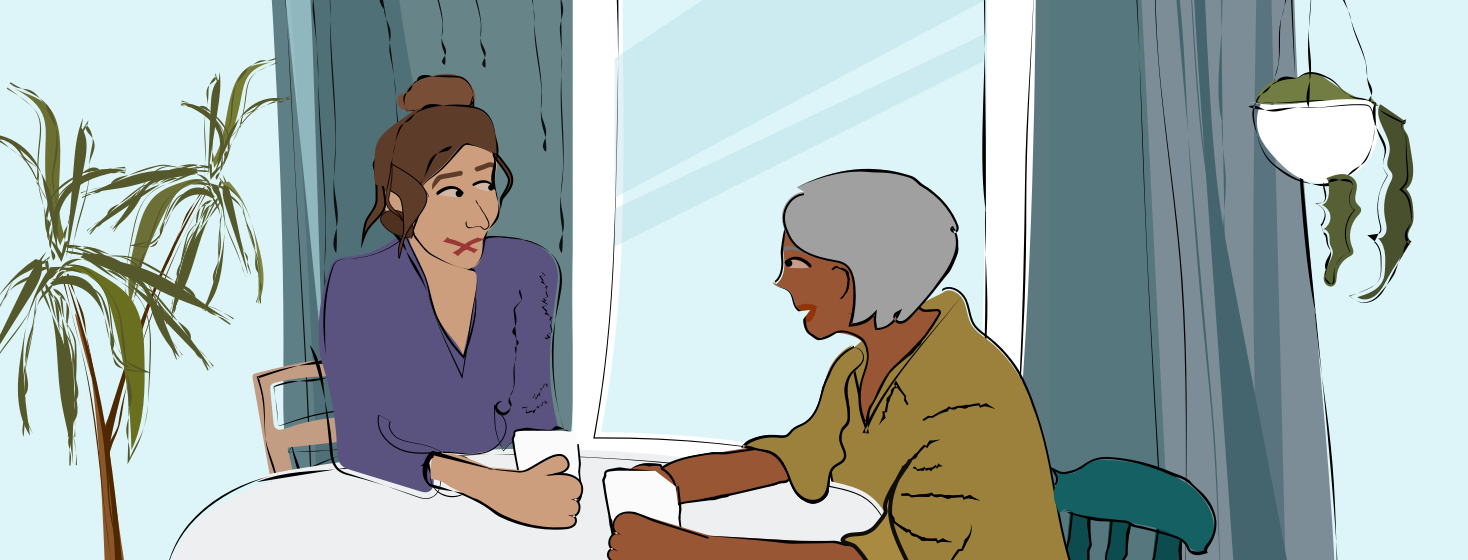For Friends & Family: How You Can Help
Since I’ve started writing about my life with Multiple Sclerosis, I’ve had the pleasure of talking to folks who have been touched in every way possible. While this is often people who live with the disease themselves, I do get the opportunity to talk to some folks who have loved ones with the disease. They usually reach out to me to ask how they can be of help, what they should be doing, etc. So, I figured for this segment of my “For friends & family” series, I’d focus on some ways that the friends and family of those with MS can be a bit more helpful to the ones they care about.
Be there to talk to and listen to them
Sounds simple to say “be there,” but what do I really mean? Yes, obviously it’s important to be available if they need to talk or need help. Recognize though, that you can be there for them without talking about their disease. For many, if they have a chance to talk to their family or friends, it may be a welcome distraction from their illness. Bottom line, not everyone wants to talk about their disease. On the flip side of that though, they may very well need to vent about it. If they do, the important thing to remember is to simply listen and not try to fix their issues.
Don't compare yourself to them
It’s also important to try to empathize without comparing your experiences to theirs. I guarantee you, if your loved one is saying they’re tired, they really mean that they are fatigued. It is not the same tired that you have felt, and it’s best not to make that comparison. Nothing screams “this person doesn’t get it” to me more than when they compare how I feel to something from their every day, still healthy life. The words “me too” should never come out of your mouth.
Check in to show you care
Listening is important. So too is checking in. Honestly, just an occasional text asking how I’m doing is nice. I may not say much or even want to talk, but getting that text can be incredibly comforting. Checking in on someone is one of the greatest ways to be there for someone, not because you expect them to talk or do anything, but because it’s a way to show that you care and you’re thinking of them. Even a text that just says you are thinking of them can be tremendous.
Be available
Being there can certainly mean in the physical sense as well. A lot of folks with MS, or other chronic illness, can’t do everything as easily as they once could. Even if they can, that act may have consequences later, as they’re spending precious energy on it. Offering to drive, coming to them as opposed to them coming to you, helping clean, and even picking up some items at the store for them can be extremely helpful. While doing those things is great, it’s important that you ask them the right way. I have to say, if someone says to me, hey, want me to pick up a few groceries for you? I’m probably gonna decline them. However, if you say, you’re already going and can pick up a few items, then maybe I’ll say yes. Asking if you want to visit? Nah, I’m OK, I don’t want anyone to think I need anything. However, if you say that you “will already be in my area,” I’m more inclined to say sure, pop on by. No one wants to feel like they’re a burden or need special attention.
But know when to not be there
I’ve often had the loved ones of people with MS reach out to me and tell me a story of how they are trying so hard to help their loved one, but the person won’t respond. While making an effort to help someone is important, you can easily overdo it. As much as I get lonely, I still need my alone time. At the end of the day, I’m the one with the disease, it’s my fight alone. Yes, support is important, but remember that you are supporting me, I’m the one going through it. Don’t be too overzealous when it comes to being supportive. If someone needs their space, give it to them and check in another time. This disease is both mentally and physically exhausting because of that - there are many times where I just can’t deal with people.
Learn about our illness
As I’ve said before, the number one thing I think you can do for someone with a chronic illness is to learn more about their disease. It’s important to read about the disease and its effects on people. I also suggest you tell your loved one that you want to learn more and ask them to point you in the right direction. I think it’s important to not only understand the disease, but also the ways it can affect someone, both mentally and physically.
Thanks so much for reading and always feel free to share!
Devin
My Other Articles On MultipleSclerosis.net - Follow Me On Facebook

Join the conversation